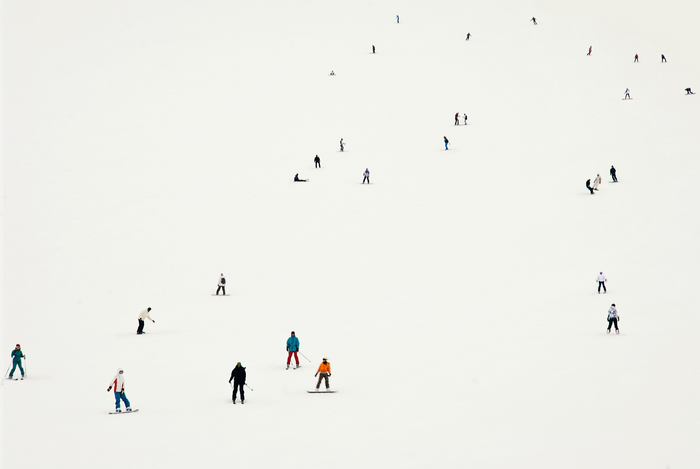A broad array of cultural practices — from the construction of stone tools to the conventions of religious rituals — are highly stable over long periods of time. One might assume that such persistent cultural knowledge is transmitted with highly specific instructions. However, many stable cultural practices are transmitted by means of tacit knowledge — that kind of working knowledge that is passed down with very limited specification.

Credit: Sonalika Vakili
A broad array of cultural practices — from the construction of stone tools to the conventions of religious rituals — are highly stable over long periods of time. One might assume that such persistent cultural knowledge is transmitted with highly specific instructions. However, many stable cultural practices are transmitted by means of tacit knowledge — that kind of working knowledge that is passed down with very limited specification.
For SFI Complexity Postdoctoral Fellow Helena Miton and SFI External Professor Simon DeDeo (Carnegie Mellon University), the transmission of tacit knowledge presents a puzzle: “How is it,” asks DeDeo, “that many complex cultural practices survive unchanged for centuries, but practitioners learn them with very little information?”
In a new study, published in Journal of the Royal Society Interface, DeDeo and Miton have developed a new model for understanding the transmission of tacit knowledge. “Cultural evolutionists often rely on models of population dynamics, which focus on single traits,” explains Miton. “Our model embraces the idea that cultural practices actually have an inner structure that is passed down.”
Miton and DeDeo conceive the learner of tacit knowledge as someone overcoming a network of constraints. Someone learning to downhill ski, for example, must get down a hill of snow, stay upright, pivot, and so on. The constraints on the would-be skier are determined by everything from the environmental conditions to the skier’s skeleton to the wax on the skis. With the help of a teacher, a slight adjustment — lean into the turn — can help the learner activate a set of skills that overcome constraints and allow them to succeed at the practice.
Ultimately, Miton and DeDeo’s model captures how a small amount of information can allow the practitioner to overcome constraints and predicts “a high degree of stability over time with the transmission of minimal information,” says Miton.
On a larger timescale, the model captures something else, too: when we observe the transmission of tacit knowledge, the pattern that emerges is one where stable transmission persists over long stretches of time, and then change happens in bursts.
Miton and DeDeo hope that their model will give researchers a framework for studying a broader range of cultural practices — including those found in other species — which are transmitted without words.
Journal
Journal of The Royal Society Interface
DOI
10.1098/rsif.2022.0238
Method of Research
Computational simulation/modeling
Subject of Research
People
Article Title
The cultural transmission of tacit knowledge
Article Publication Date
19-Oct-2022
COI Statement
No COI




